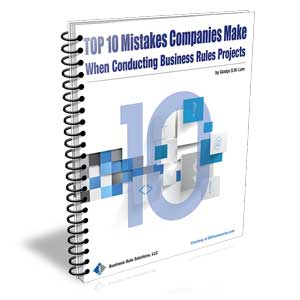Product Quality and a Longer-Term View: A 'Simple' Matter of Business Policies
Just recently John Zachman bought an Apple laptop. That's big news. This is a man who for decades never owned anything but blue shirts (think IBM). Now he has voted with his feet. Something's up if a customer like that abends his loyalty to a favored brand of so many years.
You can't help but appreciate the irony. Zachman makes his living preaching the importance of quality and taking a longer-term view of things; here he himself becomes a victim. Now I'm not an industry analyst and I don't follow the laptop space, but that's not where I'm going with this anyway. Let me get back to Zachman in a minute.
Here are two experiences of my own. A number of years ago, when Lee Iacocca was head of Chrysler, I admired his grit and bought two Chryslers in a row. To put the point delicately, both products failed to satisfy. Each fell apart at about 50-60,000 miles. I was not rewarded for my loyalty as a customer the second time around (or for that matter, even the first). I will never buy another Chrysler and I tell everyone else not to either.
Compare this to my experience with Continental Airlines. I'm a million-miler. I go out of my way to fly Continental. And they reward me for my loyalty. Frequent first-class upgrades, first bags down the chute, preferential rerouting — you name it. This company rewards me, and gets rewarded in return (with my repeat business); the other company didn't reward me and doesn't get rewarded in turn. Very simple equation.
You might argue I'm comparing apples (the fruit kind) and oranges. Continental sells a service; Chrysler sells a product. I fly several times a month; I buy a new car only so often. But why should all that matter? I think it's simply a matter of shaping the right business policies. (By 'business policies' read 'business rules in the rough.')
So if Detroit were to ask me how to solve their problems (very doubtful!), I'd say this: "Truly reward me if I offer my loyalty. Make it simply unreasonable for me to buy a Toyota." Full disclosure: I don't really own a Toyota, but that's not the point.
Here's my bold proposal. How about instituting a business policy along the following lines? "If you the new car buyer have less than $x of unscheduled maintenance for the first y number of miles, or during the first z years of ownership, we the car maker will sell you your next car for 5% or 10% or 15% OFF. Yes, we the car maker will reward you in a direct and meaningful way for your product loyalty on your next car purchase from us.
In this scenario, everybody wins. The customer gets a better car (presumably both times) and pays less in maintenance dollars. The car maker gets a higher, more-or-less predictable rate of repeat buys. In addition, the car maker presumably also gets more first buys because of the higher quality. I'm certainly no economics whiz but it seems to me the gains should more than pay for the higher costs of built-in quality.
In this product loyalty scheme, the customer and company form a continuing bond. Actually, Toyota already plays that game — only it doesn't reward the buyer with a discount toward the next purchase. So my proposed business policy simply goes Toyota one better. I concede the price of the first car might be a little higher. But so too generally are the prices of Toyotas. By the way, I refuse to believe that North American car manufacturers can't match Japan on quality — or style or gas mileage or anything else.
What does all this have to do with John Zachman? What happened to me and my Chryslers is exactly what happened to Zachman and his IBM (well, Microsoft) laptops. No reward for product loyalty.
But there's something else here. Over the years I've listened to Zachman despair time and time again about whether in our quarter-to-quarter, profit-driven business world, North American companies can ever achieve true quality or take a longer-term view of things.
My answer to him on that is 'stay hopeful'. Maybe there's nothing structurally wrong; instead, maybe it's simply a matter of shaping the right business strategy with the right business policies. Reward the behavior you want, and you'll get the loyalty you need. No more excuses or second best, just smart business policies!
# # #
About our Contributor:
Online Interactive Training Series
In response to a great many requests, Business Rule Solutions now offers at-a-distance learning options. No travel, no backlogs, no hassles. Same great instructors, but with schedules, content and pricing designed to meet the special needs of busy professionals.










How to Define Business Terms in Plain English: A Primer
How to Use DecisionSpeak™ and Question Charts (Q-Charts™)
Decision Tables - A Primer: How to Use TableSpeak™
Tabulation of Lists in RuleSpeak®: A Primer - Using "The Following" Clause
Business Agility Manifesto
Business Rules Manifesto
Business Motivation Model
Decision Vocabulary
[Download]
[Download]
Semantics of Business Vocabulary and Business Rules